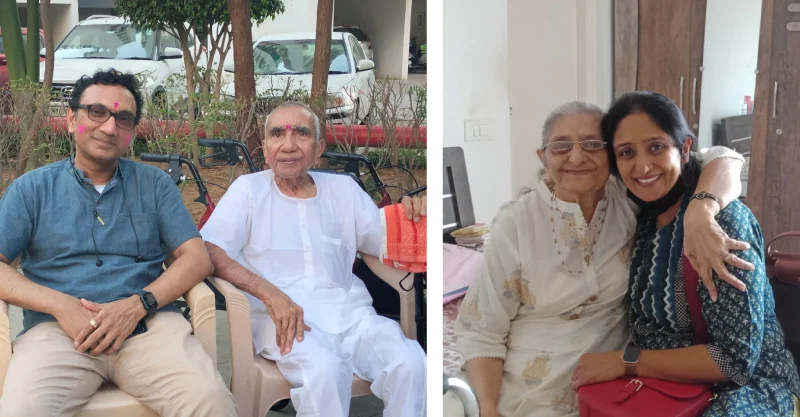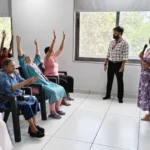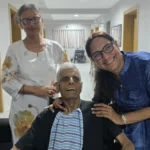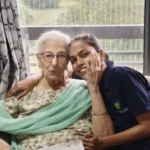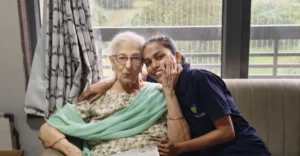Understanding Dementia
The term dementia is used to describe the state when there is a severe decline in mental ability that is enough to interfere with daily life due to different diseases that affect various parts of the brain. It mainly affects memory and cognitive function. There are two major types of dementia:
Alzheimer’s Disease
This is the most common type of dementia, accounting for 60-80% of all cases. It is a progressive disorder characterised by gradual loss of memory and cognitive abilities, associated with the accumulation of amyloid plaques and tau tangles in the brain. The disease has been investigated for more than a century.
Vascular Dementia
This type of disease results from inadequate blood supply to the brain, which normally occurs following a stroke or small strokes. Some common symptoms include difficulty in solving analytical problems, slow thinking speed, and loss of memory.
Other Types of Dementia Include:
Lewy Body Dementia
Abnormal deposition of the protein alpha-synuclein (Lewy bodies) in the brain, leads to memory loss, confusion, and visual hallucinations.
Frontotemporal Dementia
This focuses on the front and sides of the brain, changing the personality, behaviour, and language of a person.
Mixed Dementia
The person bears two or more types of dementia simultaneously. An example would be somebody suffering from Alzheimer’s disease with vascular dementia.
Dementia with Parkinson’s Disease
Around 80 per cent of people who have Parkinson’s eventually develop some kind of dementia, marked by forgetfulness in following instructions and accomplishing a task.
Common dementia symptoms include memory loss, difficulty in communication, disorientation with time and place, loss of attention span, impairments in problem-solving abilities, poor judgment, mood changes, and social withdrawal.
Diagnosis and treatment integrate assessments of the medical history and physical examinations with neurological tests and, where deem necessary, imaging of the brain. There is no cure for dementia, but treatment options can relieve symptoms and enhance the quality of life.
The Impact of Advanced Dementia on Families.
Caring for a loved one with advanced dementia will dramatically alter the dynamics within your family. You may find yourself taking on a parental role, and these shifts can be so gradual that they go unnoticed initially. Knowing this helps navigation at this time and can remind you and your family of the good times shared. You are not alone, and you do matter. Reflect on different coping strategies your family might use.
Accept your loved Ones with Dementia and What to Expect in this Stage.
At this stage, you may start to feel that your loved one is developing memory and changes in thought processes.
- Memory loss that disrupts daily life.
- Challenges in planning or solving problems.
- Having trouble finishing daily tasks at work, home, or leisure.
- Getting confused about time or place.
- Having trouble understanding spatial relationships and visual pictures
- New problems with language whether writing or speaking.
- Losing track of things and the ability to follow the right path again
- Decreased or poor judgment
- Withdrawal from work or social activities
- Changes in mood or personality.
Tips for Everyday Care for Dementia People?
Learn about the normal changes with ageing and those that indicate a need for a check-up.
Keep track of the changes you’ve observed.
If your loved one doesn’t bring it up, find a sensitive way to discuss these changes and encourage a medical checkup.
It’s important to know if memory and thinking changes are caused by something treatable. If resistant, seek help from trusted family or friends in an effort to encourage this step.
Maintain you and your loved one as healthy as possible:
If you’re finding it difficult to care for your loved one, reach out to PapayaCare. Our professional staff is specially trained in dementia care.
- 24×7 support and supervision.
- Personalized care plan for each residence according to their need.
- 24×7 professionals to administer and manage medications.
- Professional caretakers who assist in daily living activities (Bathing, dressing, combing, grooming, eating, changing diapers etc).
- Special activities and therapies to stimulate memory and cognitive therapy.
Conclusion
Caring for a loved one with dementia can be challenging and transformative. Understanding the different types of dementia, their symptoms, and their impacts can help families navigate this difficult journey. As dementia progresses, family dynamics often shift, and accepting these changes while seeking support is crucial.
Though there is no cure for dementia, treatments and support services can enhance the quality of life. Staying informed, monitoring changes, and seeking professional help are key to managing care effectively. Remember, you are not alone—your dedication and support make a significant difference.

